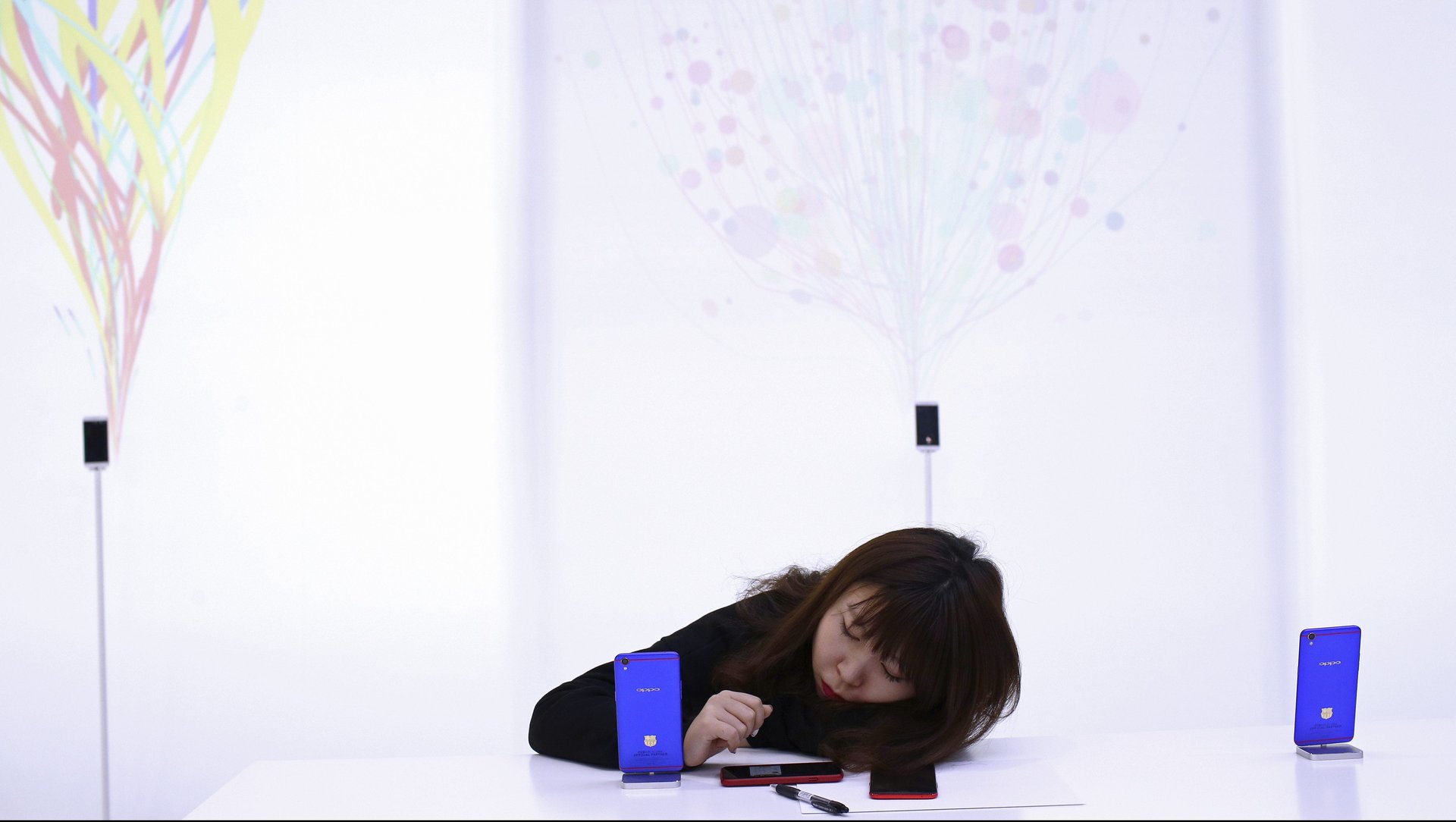You’ve almost certainly not heard of the world’s third-largest smartphone company
Barcelona


Barcelona
Quick—name the top three smartphone makers in the world.
What did you come up with?
You almost certainly got Apple and Samsung, which have had a veritable lock on the market about as long as there has been one.
Who did you think came in third? Perhaps LG? Or Xiaomi, Huawei, or another Chinese company?
Well, it is a Chinese company, but almost certainly not one you’ve ever heard of:
BBK Electronics is a consumer electronics company that owns a range of smartphone brands that are popular in regions around the world. It started as a supplier for the games industry, then made CD players and headphones, among other products. In 2007, with the launch of the iPhone, BBK saw an emerging new market, and instead of just launching one phone brand, it launched a few.
BBK owns Oppo, which is popular across Southeast Asia and the Indian subcontinent and sponsors FC Barcelona; Vivo, which mainly sells in Russia, India, and China, and imoo, which markets phones in China, but seems to have gone quiet recently.
Oppo in turn owns OnePlus, a smartphone maker that sells directly to consumers online, including in the US. Although it has distanced itself from its Oppo ties, OnePlus’ newer phones look nearly identical to its parent company’s devices. A representative from Oppo told Quartz that employees from both companies move across each other, and while they may have similar design languages on certain phones, they’ll still be marketed differently in different countries. And they might not always look the same in the future.
When you combine shipping data from market-research firm IDC for Oppo and Vivo (OnePlus doesn’t ship in the same quantities), BBK is one of the largest smartphone producers in the world. It shipped just shy of 200 million phones in 2017, according to IDC’s estimates, which is nearly as many phones as Apple, although the average price of a BBK phone will likely be a few hundred dollars less than Apple’s average selling price.
None of BBK’s companies had an official presence at the Mobile World Congress trade show this year—Oppo told me it really had nothing new to share, so why spend on a booth. OnePlus said similarly, and Vivo had an attractive concept phone it announced but didn’t have ready to show publicly.
This makes one wonder: Without the third-largest smartphone manufacturer in the world at MWC, can you really call it a true mobile world congress?